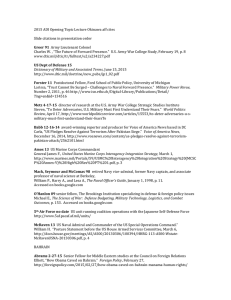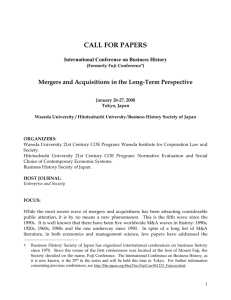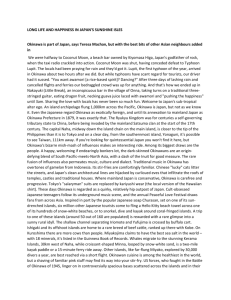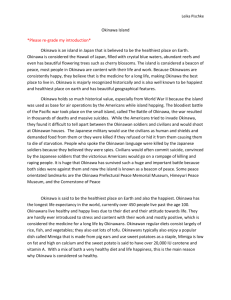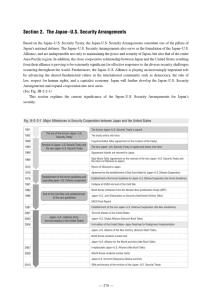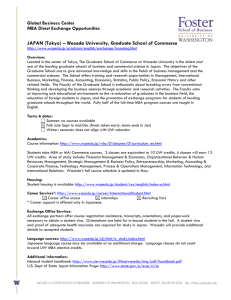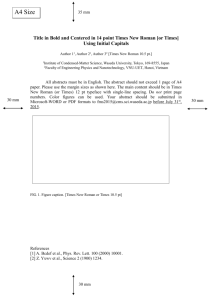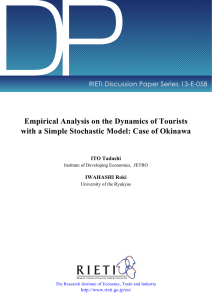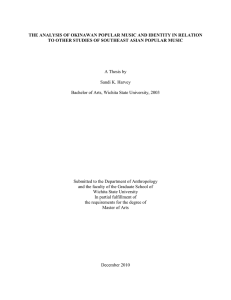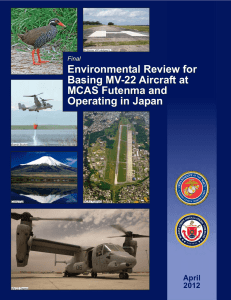JSPS Fellowship Research Experience Report Project title: Name:
advertisement
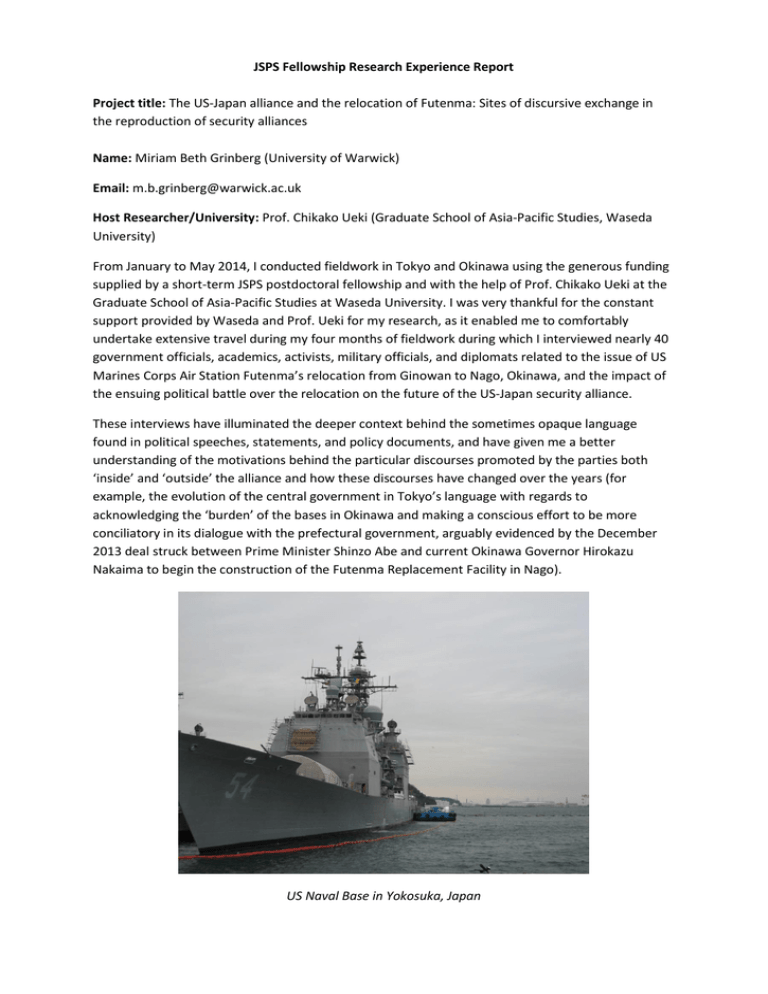
JSPS Fellowship Research Experience Report Project title: The US-Japan alliance and the relocation of Futenma: Sites of discursive exchange in the reproduction of security alliances Name: Miriam Beth Grinberg (University of Warwick) Email: m.b.grinberg@warwick.ac.uk Host Researcher/University: Prof. Chikako Ueki (Graduate School of Asia-Pacific Studies, Waseda University) From January to May 2014, I conducted fieldwork in Tokyo and Okinawa using the generous funding supplied by a short-term JSPS postdoctoral fellowship and with the help of Prof. Chikako Ueki at the Graduate School of Asia-Pacific Studies at Waseda University. I was very thankful for the constant support provided by Waseda and Prof. Ueki for my research, as it enabled me to comfortably undertake extensive travel during my four months of fieldwork during which I interviewed nearly 40 government officials, academics, activists, military officials, and diplomats related to the issue of US Marines Corps Air Station Futenma’s relocation from Ginowan to Nago, Okinawa, and the impact of the ensuing political battle over the relocation on the future of the US-Japan security alliance. These interviews have illuminated the deeper context behind the sometimes opaque language found in political speeches, statements, and policy documents, and have given me a better understanding of the motivations behind the particular discourses promoted by the parties both ‘inside’ and ‘outside’ the alliance and how these discourses have changed over the years (for example, the evolution of the central government in Tokyo’s language with regards to acknowledging the ‘burden’ of the bases in Okinawa and making a conscious effort to be more conciliatory in its dialogue with the prefectural government, arguably evidenced by the December 2013 deal struck between Prime Minister Shinzo Abe and current Okinawa Governor Hirokazu Nakaima to begin the construction of the Futenma Replacement Facility in Nago). US Naval Base in Yokosuka, Japan I spent the first two months of my research in Tokyo while in residence at Waseda’s STEP21, an excellent facility for foreign researchers, meeting with current and former officials from the Ministry of Foreign Affairs, the Ministry of Defense, the National Institute for Defense Studies (NIDS), the Japanese Ground Self-Defense Forces (JGSDF), and several prominent Tokyo-based think tanks; among my interviewees were Takashi Inoguchi, Professor Emeritus at the University of Tokyo, Tomonori Yoshizaki, Director of the Security Studies Department at NIDS, and Noboru Yamaguchi, former Commanding General of the JGSDF Ground Research and Development Command. Following this, I travelled to Okinawa, where I conducted an additional two months of interviews while based at the University of the Ryukyus’s Faculty of Law and Letters under the supervision of Prof. Eiichi Hoshino. There, I spoke with representatives of the anti-base activist community, the US Marine Corps, the US State Department, and prefectural government officials including former Governor Masahide Ota and former Ginowan Mayor Yoichi Iha. View of US Marine Corps Air Station Futenma from Kakazu Heights Park observatory I was told prior to arriving in Japan that one of the best ways to build your network of research contacts is simply by inquiring, at the end of every meeting, who the interviewee might recommend to speak with further on the topic—and I can confirm that this was, by far, one of the most helpful tips I received with regards to conducting fieldwork there. Interviewees were also eager to share their knowledge in terms of academic materials and locations of historical importance to visit, which is how I ended up being able to see a number of fascinating sites including Yasukuni Shrine, the US Navy Base in Yokosuka, the Okinawa Peace Memorial Museum and Himeyuri Monument, and Iejima.

